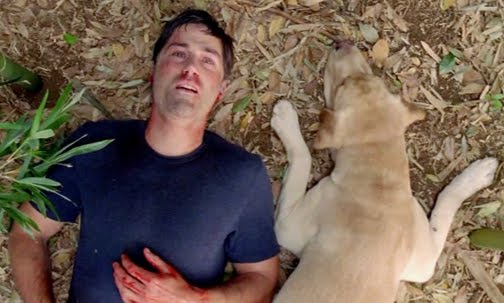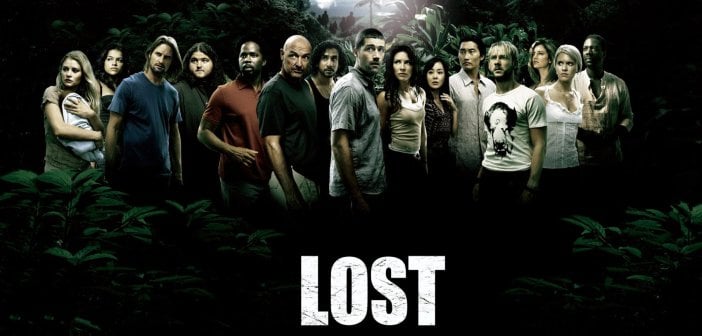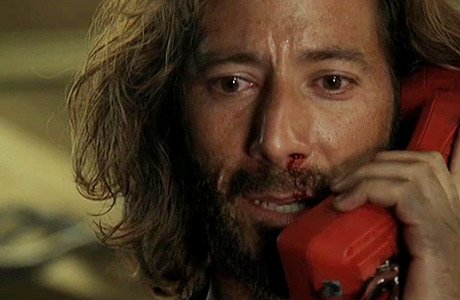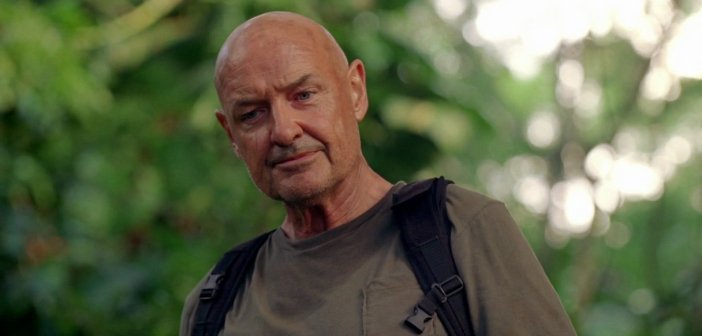Lost – What Was the Point of the Most Divisive TV Show in Recent History?
It’s the morning of May 24, 2010. The big finale of what has been easily one of the most divisive television series of all time had aired the night before on American television. You stumble down the stairs at an altogether too early hour and boot up your laptop and begin the nerve wracking search for a stream online. RTÉ would air the episode in full that very evening, but you can’t wait that long. You’ve been waiting six years for answers. You can’t wait an hour more. You need to see the last ever episode of Lost immediately.
It’s a feature length finale. The stream is worryingly split into two parts, doubling the chances of being stuck with something that buffers at a glacial pace. By accident, you load the second part first. “This island’s comin’ down, Doc!” you hear Sawyer scream as a storm rages around him. You cry out loud and scramble to close the tab, nearly injuring yourself in the process. Spoilers.

Just over an hour and a half later, you’re mentally, and physically, exhausted. There are hints of tears in the corners of your eyes. What are you mourning? The ending of the only television series you’ve truly been invested in up to this point? Was it the genuinely moving and, in your opinion, wholly satisfying ending? Or was it the cheap trick of putting that dog into Jack’s death scene? You really can’t handle dogs in emotional situations, can you? You watch it again that evening on television, and a tear twinkles in your eye again, family members looking utterly perplexed at your response to an ending they feel nothing but bafflement towards. Okay, so that may not quite have been everyone else’s experience with this finale. For some, such as those who had abandoned the series when it was navigating choppy waters somewhere around the fifth season (or even earlier in many cases), they looked down their noses with contempt at what they viewed as a fitting mess of an ending to a series they had considered dead in the water years before. Others still, those who had stayed with Lost until the bitter end, waiting for answers to all of their questions – about the island, about the ‘flash sideways’, about that ever present sequence of numbers – only to be left feeling thoroughly unfulfilled, empty, and often angry.
At the end of the day, though, your opinion on Lost, if you stuck with it, is probably closely linked to what you expected from the series. For example, if you were seeking rational, real-life explanations for mysteries like how the island cured Locke, how the island could ‘move’, or what the Smoke Monster actually was, you were bound to be disappointed when everything wrapped up.

No, only if you were able to suspend your disbelief and accept that Lost, and its ending, would be heavily ingrained in the supernatural (as it hinted continuously in its first season), and therefore would not provide the neatly packaged explanation you were looking for, would you really be able to appreciate Lost for what it actually is – possibly one of the greatest character dramas of all time.
Think about it. As soon as Jack’s first flashback played in the very first episode, this should have been an indication that Lost wasn’t just going to be six years of wondering what that thing tearing through the forest was and why some survivors were more prone to bloody noses than others. The fact that the producers chose to develop their characters through these flashbacks, rather than exclusively how they dealt with situations as they arose on the island, hinted at a grander message that wouldn’t really reveal itself until Lost’s climax.
And that ‘grander message’ is one of the most basic themes of storytelling – redemption.
It’s evident even in the title of show itself. Sure, on the surface, ‘Lost‘ as a title simply refers to dozens of people stranded on an uncharted island with little hope of rescue – but once you have a chance to digest the series as a whole, it’s also clear that each and every one of the crash survivors was ‘lost’ in their own lives up to the point of the crash. Jack was struggling to come to terms with the death of his father, Kate was a matter of hours away from incarceration, Claire was fighting to cope with an unplanned pregnancy, Charlie was consumed by a crippling heroin addiction, and Hurley was dealing with the chaos and guilt of his unexpectedly catastrophic lottery win. Even the characters who weren’t on Oceanic flight 815, but who were nevertheless drawn to the island in their own ways, were plagued by their own demons – Desmond was confined to the hatch, doomed to push a button for the rest of his days, pining for a lost love; Ben waged war with Charles Widmore while vying for Jacob’s approval, and eventually let his jealousy of Locke consume him.
Yet for all of the trials and tribulations of our heroes and anti-heroes, almost every single one of them finds some form of redemption or happiness from their involvement with incidents on the island – Sawyer found steady ground and fulfilment for perhaps the first time in his life through his time with the Dharma initiative; both the marriages of Rose and Bernard and Sun and Jin found new leases of life once Rose’s cancer abated and Sun and Jin were reunited following Sun’s return to the island.

Furthermore, a healthy amount of Lost’s most memorable moments and episodes don’t just rely on massive plot revelations, but they also weave in solid character exposition with such success that the characters and their own personal stories take centre stage. For example, the fourth season episode ‘The Constant’, one of the series’ most highly rated episodes, is the first to overtly deal with the theme of time. We see Desmond’s consciousness split in two while travelling from the island to the freighter, and he begins to flit back and forward in time. On the surface, the episode is about Desmond trying to find his ‘constant’ in both time periods, which will anchor his sanity and prevent his mind from collapsing, and serves as an engaging yet dizzying introduction to the island’s less than fixed place in time and space. However ‘The Constant’ concludes with a touching long-distance reunion between Desmond and Penny Widmore, his ‘constant’, an emotional pay off that the show had been building up to since Desmond’s introduction in season two.
At this point, I should probably back up and state that this isn’t a blanket defence of Lost – it is by no means perfect. Even allowing for the forced changes to storylines due to extraneous circumstances like the writer’s strike or the sudden departure of actors, there are still enough plot holes to make Lost an occasionally very bumpy ride indeed. The evident importance of Walt that was never satisfactorily expanded on, and Libby’s involvement with Hurley prior to the two meeting on the island are two that stand out. That’s not to mention that the fifth and sixth seasons often feel like they’re about to crumble under the weight of their own increasingly complex narrative as it struggles to tie up as many loose ends as possible. Other glaring series missteps like Nikki and Paulo’s introduction are better left unexplored.

But the point here is that very little of that matters in the grand scheme of things. Lost is character drama at some of its finest, and I get the feeling that that’s lost (heh) on a lot of people who either abandoned the series at an early stage, or who stuck with it to the bitter end and came away feeling cheated. The island, and the events it inspires, were never meant to be the main focus of Lost, but rather a theatre for us to explore a number of very well rounded characters and their own individual arcs. You could go as far as to say that the island itself is probably the most complex character of all, its mysteries peeled back layer by layer, its colourful history drip fed to the audience, a conflict of its own personified in the battle between Jacob and The Man in Black.
It might look like a load of revisionist nonsense to say that Lost was never about the mysteries. It might look like a cop out to claim that the main focus all along is on the character arcs and development, and you might ask is that not the point of any good story – to observe characters in adverse situations to see how they react and adapt, and achieve some kind of personal redemption on the way? You would have a point, but it again comes back to the very objectionable rhetoric that Lost was bad television because it didn’t make any sense or that it didn’t explain any of the mysteries it set up (an entirely different article could be written explaining that the writers did, in fact, explain many of the ambiguities of the series, but I digress). This simply isn’t the case.
On the whole, Lost managed to set up probably one of the most intriguing scenarios in recent television memory, where behind every answer hid another handful of questions, while at the same time managing to produce engaging and often genuinely moving character stories. This strikes me as a staggering achievement and an amazing juggling act, and I’d like to think history will look back on Lost favourably – as a flawed gem, but a gem nonetheless.
Featured Image Credit: thewrap.com

